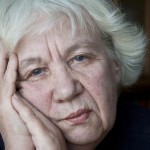
Older people who suffer from depression and executive dysfunction experience significant levels of disability and often don’t respond well to conventional drug treatments. This randomised controlled trial conducted by researchers from Weill Cornell Medical College in New York State, attempted to find out if problem-solving therapy is better than supportive therapy for reducing disability in older [read the full story…]

